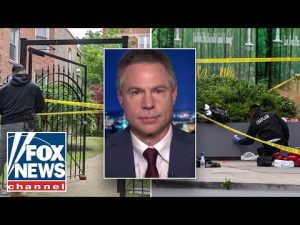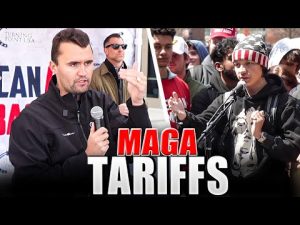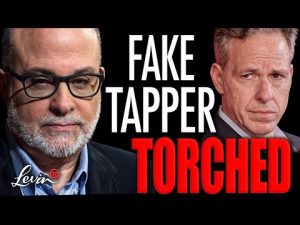In a surprising twist at Donald Trump’s recent inauguration, the political landscape in Washington, D.C. seems to be shifting under his influence. A conservative commentator, who was seated only a few rows back from Trump, noted a dramatic change in the atmosphere of the event compared to past inaugurations. Previously, the air was thick with protests and hostility, particularly in a city historically viewed as no fan of the former president. However, this time around, there was an agreeable camaraderie among attendees, with no one expressing criticism of Trump. It appeared as if the former president had somehow cast a spell of charm over the typically elitist political capital.
The commentator pointed out that despite Washington D.C.’s reputation for being more critical of Trump than cities like New York or Los Angeles, he experienced nothing but warmth and positivity from the crowd. This sentiment seems to have blossomed after years of the “Rosencrantz and Guildenstern” play between Trump and the political elite, now leaving many confused and pondering what this mood shift means for the future of Washington. The roaring applause and warm smiles from the attendees were a stark contrast to the protests and scowls that marked Trump’s earlier inauguration in 2017.
However, the inaugural event wasn’t without its peculiarities. The inauguration took place inside the rotunda, a significantly smaller venue compared to its traditional outdoor setting. Golden chandeliers and historic architecture surrounded the notable guests, including the heads of major tech companies, former presidents, and their spouses. The commentator, albeit a bit of a showman, humorously recalled an interaction with Joe Biden, who was quick to flash a friendly smile his way, despite not truly knowing who he was. It’s almost as if Biden was practicing for his role by exuding a generic affability without any solid foundation—classic Biden!
Switching gears, the conversation shifted to a rather displeasing event concerning Bishop Mariann Edgar Budde, of the Episcopal Church, who made headlines for insulting Trump publicly. The commentator lamented this misstep, feeling it smacked of desperation and irrelevance in today’s world. He reflected on his own experiences growing up in the Episcopal Church, stating that the lack of genuine moral leadership is part of a larger trend pushing people away from traditional institutions. The question is raised—how can a church, aiming to represent moral fortitude, remain relevant when its leaders seem to prioritize political identities over faith? This downward spiral, said the commentator, might just lead to the church’s downfall, especially when congregants feel disillusioned by leaders who appear more focused on leftover grievances than shared beliefs.
The discussion then broadened to the larger societal issues of the day. Amidst wars brewing globally and economic troubles knocking at the door, the commentator feels that the focus on surface-level rhetoric—like debates around “trans kids”—is simply out of touch. There’s a big world out there clamoring for attention, yet some individuals, like Bishop Budde, remain trapped in a bubble, oblivious to the pressing issues demanding urgent dialogue. The irony is rich: while serious matters require discussion, certain leaders seem to prioritize applause from their small audience over meaningful engagement.
In the end, as the winds of change sweep through Washington, it appears that Donald Trump’s unique ability to stir sentiment among his supporters remains alive and well. No one wants to hear tired narratives when real challenges loom. As America collectively holds its breath, navigating through political antics and societal upheaval, the question remains—will Trump’s newfound image of popularity in D.C. signal a renaissance for conservatism or simply another round of political theatre? Only time will tell, but for now, the lighthearted humor and camaraderie from that inauguration day linger like a hopeful breeze in a city often viewed as a political storm.







